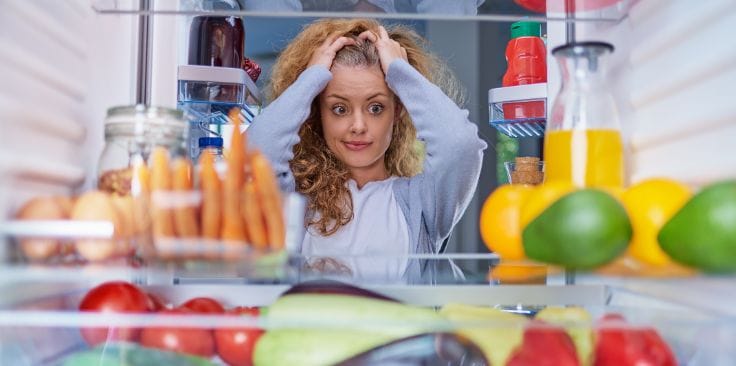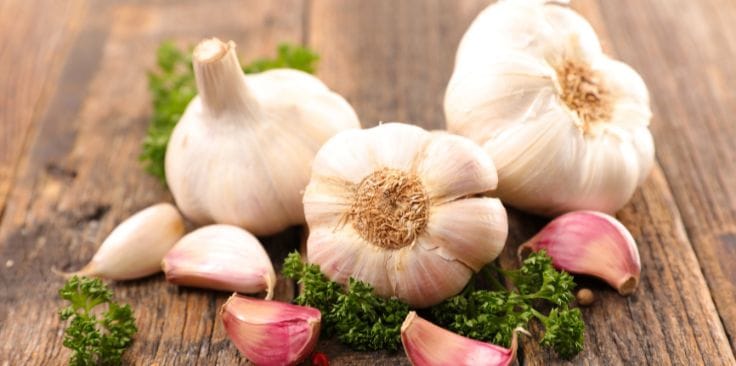What to Eat After a Colon Cleanse?
Medically reviewed by our experts


Wondering what to eat after colon cleanse to maintain its benefits? Your food choices following this procedure play a vital role in how your body recovers and how long the positive effects last. Selecting the right foods helps your digestive system adjust while supporting your body’s natural processes.
This guide will walk you through the best post-cleanse nutrition options to help you get the most from your cleansing experience.
Key Article Findings
- Start with liquid foods like broths and smoothies in the first 6-12 hours
- Gradually add soft, easy-to-digest solid foods as your body adjusts
- Avoid processed foods, alcohol, and spicy items that may irritate your digestive system
Why Post-Cleanse Nutrition Matters
The hours and days after a colon cleanse represent a critical time for your digestive system. Your body has just gone through a process that removes waste and bacteria from your intestinal tract, leaving it in a more sensitive state. What you eat during this recovery period can either support or hinder the benefits you’ve gained.
Good food choices help maintain the cleansing effects while providing essential nutrients that support healing. They allow your digestive system to ease back into its normal function without stress or irritation. Poor food choices might cause discomfort, bloating, or gas, and could potentially undo some of the positive effects of your cleanse.
Your digestive system needs time to rebuild its natural balance of gut bacteria. The right foods can help this process along, promoting long-term gut health and overall wellness.
Initial Foods to Consume After a Colon Cleanse
In the first 6-12 hours after colonic irrigation what to eat becomes especially important as your system is at its most sensitive. During this initial period, focus on liquid and very soft foods that provide hydration and gentle nutrition without taxing your digestive system.
Clear broths serve as an excellent starting point, offering minerals and hydration with minimal digestive effort. Vegetable juices provide vitamins and antioxidants in an easily absorbable form. Herbal teas, particularly ginger or peppermint, can soothe your digestive tract while helping with hydration.
Light smoothies made with ripe bananas, cooked apples, or melons blended with water offer easily digestible nutrition. If you include protein, opt for a small amount of plant-based protein powder rather than dairy or nuts initially.
Recommended initial foods include:
- Vegetable broth
- Fresh vegetable juice (without pulp)
- Herbal teas (especially ginger, chamomile, or peppermint)
- Light fruit smoothies (banana, melon, cooked apple)
- Coconut water
- Diluted fruit juices without pulp
These gentle options provide necessary nutrients while giving your digestive system time to adjust.
For those looking to try a gentle yet effective cleansing option, our Cleanse24 supplement offers a natural way to support your digestive health without harsh ingredients. Many users find it helpful for kickstarting their wellness journey.
How Long After a Colon Cleanse Can I Eat Solid Foods?
Many people wonder how long after a colon cleanse can I eat regular food again. Most individuals can begin introducing soft, easily digestible solid foods approximately 6-12 hours after their cleanse. Your body will generally signal when it’s ready for more substantial nutrition.
Listen to hunger cues and any digestive feedback your body provides. Start with very small portions of soft foods, and if those cause no discomfort, gradually increase portion sizes and food variety. Most people can return to their normal eating patterns within 24-48 hours, though maintaining a focus on wholesome, clean foods may extend the benefits of your cleanse.
Signs that indicate you’re ready for solid foods include natural hunger (not just a desire to eat), minimal gas or bloating, and normal bathroom habits returning. If you experience any discomfort when trying solids, return to liquids for a few more hours.
Best Foods to Introduce in the First 48 Hours
After a colon cleanse what to eat in the first two days is crucial for restoring digestive balance while providing proper nutrition. During this time, focus on foods that are nutrient-dense yet gentle on your system.
Fermented foods like yogurt, kefir, and sauerkraut help restore beneficial gut bacteria. These foods contain probiotics that support your microbiome, which may have been partially flushed out during the cleanse. Steamed vegetables provide fiber, vitamins, and minerals without the digestive strain of raw vegetables. Good options include carrots, zucchini, squash, and spinach.
Well-cooked grains like white rice, quinoa, and oatmeal offer easy-to-digest carbohydrates that provide energy without irritation. For protein, opt for lighter sources such as:
- Poached or baked fish
- Soft-boiled eggs
- Well-cooked chicken without skin
- Tofu or tempeh
Simple meal ideas for this period include:
- Steamed vegetables with a small portion of quinoa
- Baked sweet potato with a bit of olive oil
- Simple vegetable soup with well-cooked rice
- Poached fish with steamed carrots and zucchini
- Plain yogurt with cooked fruits like applesauce
These foods provide balanced nutrition while supporting your digestive system’s recovery after your cleansing procedure.
Foods to Avoid After a Colonic Cleanse
After a colonic cleanse, certain foods may irritate your digestive system or counteract the benefits of your cleanse. Avoiding these foods helps maintain your results and prevents discomfort.
Processed foods contain additives, preservatives, and artificial ingredients that may stress your newly cleansed system. Heavy dairy products like cheese and ice cream can be difficult to digest and may cause mucus formation. Red meat is harder to break down and requires more digestive effort than lighter proteins.
Stay away from:
- Alcohol and caffeine, which act as diuretics and may irritate the digestive tract
- Spicy foods that can cause irritation to sensitive tissues
- Fried and greasy foods that require extra bile for digestion
- Refined sugars and sweets that feed unhealthy gut bacteria
- Gluten-containing foods if you have any sensitivity
Instead, opt for gentle, whole foods that support your digestive health rather than challenge it. Your body will thank you for making these wise choices while it readjusts after the cleanse.
Supporting Your Digestive System Long-Term
To maintain the benefits of your colon cleanse over time, focus on developing habits that support ongoing digestive health. A diet rich in plant-based fiber from fruits, vegetables, and whole grains helps maintain regular bowel movements and feeds beneficial gut bacteria.
Staying properly hydrated is equally important. Aim for at least 8 cups of filtered water daily, with additional liquids from herbal teas and fresh vegetable juices. Probiotic-rich foods should become a regular part of your diet to maintain a healthy gut microbiome.
Adding natural supplements for lymphatic system support can also help maintain the detoxification benefits of your cleanse. These supplements work alongside proper nutrition to help your body continue eliminating waste efficiently.
Regular physical activity stimulates peristalsis, the wave-like muscle contractions that move food through your digestive tract. Even moderate exercise like walking or yoga can make a significant difference in digestive health.
Conclusion
Proper nutrition after a colon cleanse plays a vital role in maximizing benefits and supporting your digestive health. By starting with gentle liquids and gradually introducing soft, nutritious foods, you give your system time to adjust while still providing essential nutrients.
Pay attention to your body’s signals and progress at a pace that feels right for you. With the right food choices, you can extend the refreshing effects of your cleanse while setting the foundation for better digestive health going forward.
You can typically consume light liquids immediately after a colon cleanse. Start with clear broths, herbal teas, and diluted juices. Most people can begin introducing soft, easily digestible solid foods within 6-12 hours after their cleanse, with a return to normal eating within 24-48 hours.
After a colonic cleanse, begin with hydrating liquids like broths, herbal teas, and fresh juices. Then progress to soft, easy-to-digest foods such as steamed vegetables, well-cooked grains, and light proteins. Fermented foods like yogurt and kefir can help restore healthy gut bacteria.
It’s best to wait 24-48 hours before returning to your normal diet after colonic irrigation. Start with liquids and soft foods, then gradually reintroduce your regular diet. Some people may need more time depending on how their body responds.
You can consume clear liquids immediately after a colon cleanse. For solid foods, it’s advisable to wait at least 6 hours, starting with very soft, easily digestible options before moving to more substantial foods.
After a colon cleanse, avoid processed foods, alcohol, caffeine, dairy products, red meat, spicy foods, fried and greasy foods, refined sugars, and gluten-containing foods if you have any sensitivity. These can irritate your digestive system or counteract the benefits of your cleanse.
Maintain the benefits by eating a fiber-rich diet, staying hydrated, consuming probiotic-rich foods regularly, staying physically active, and considering natural supplements that support detoxification. Consistent healthy habits will help extend the positive effects of your cleanse.
Yes, taking probiotics after a colon cleanse may be beneficial. The cleansing process can remove both harmful and beneficial bacteria from your gut. Probiotics can help restore a healthy balance of gut flora, supporting digestive health and immune function.
What you should know about colon cleansing. (n.d.). Mayo Clinic.
Whelan, C. (2024). What to eat after colonoscopy. Healthline.
Fletcher, J. (2023). Foods you can eat after a colonoscopy.
Clinic, C. (2025). What can you eat after a colonoscopy? Cleveland Clinic.
Popular Articles
Advertisement. This site offers health, wellness, fitness and nutritional information and is designed for educational purposes only. You should not rely on this information as a substitute for, nor does it replace, professional medical advice, diagnosis, or treatment. If you have any concerns or questions about your health, you should always consult with a physician or other health-care professional. Do not disregard, avoid or delay obtaining medical or health related advice from your health-care professional because of something you may have read on this site. The use of any information provided on this site is solely at your own risk.






